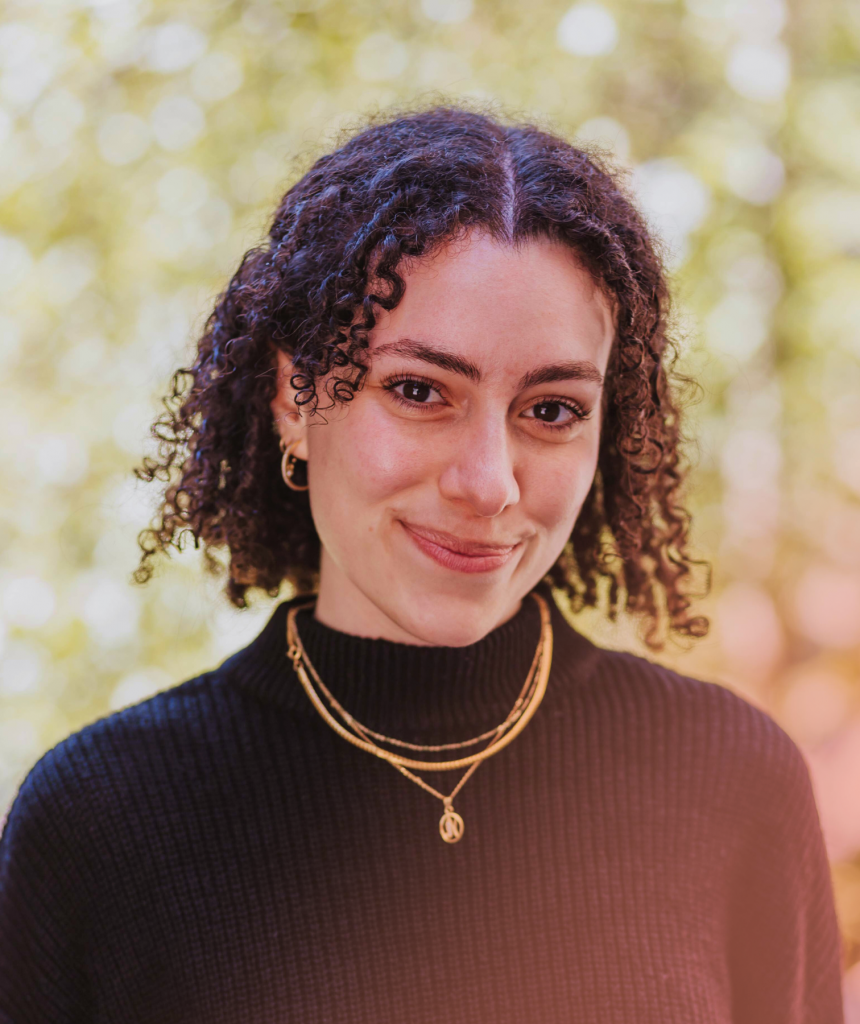
‘La meva recerca’ Núria’s PhD on the syntax-discourse interface in Catalan and Spanish
Núria Barrios-Jurado is a 3rd year PhD Linguistics student in our School of Arts, Languages and Cultures. Her work focuses on the linguistic syntax-discourse interface in Catalan and Spanish. As a Spanish student studying post-Brexit, she talks to us about the challenges in securing postgraduate research funding and starting her PhD. But first, we asked…
When did you first know you wanted to study at PhD?

Núria’s research focuses on syntax in Catalan and Spanish
How are you funding your PhD? Did you encounter any difficulties in approaching funding opportunities?
I am currently funded by the NWCDTP AHRC. It was a very stressful process to apply for it. I am Spanish and had been in the UK since before Brexit. Brexit became effective the month I submitted my application. I read the policy and regulations about how students with pre-settlement status would be classed in terms of fees and funding, but there was no concrete information about it. Even though I emailed and enquired about it to the University and funding bodies, I never got an answer. At the end of June, I got PDS and NWCDTP funding and got confirmation that due to my status, I would be classed as a home student.
Can you provide an overview of your project and research?
My research project investigates the syntax-discourse interface in Catalan and Spanish. Different languages use different strategies to mark how information is package in a sentence (that is, broadly speaking, what is presupposed information and what is not). English generally does this by means of prosodic stress, whereas other languages such as the Romance languages employ different word order configurations, e.g. placing the subject after the verb (VS), instead of the canonical subject-verb order (SV).
My project investigates which predicates can appear in VS order in a sentence-focus structure (i.e. in an out-of-the-blue context). To do so, I am using qualitative and quantitative analysis of corpus data (a collection of written texts in Catalan and Spanish), and experimental data (I collected grammaticality judgements and conducted a Production Task with 80 native speakers of Catalan and Spanish during my fieldwork in Spain). I am looking at different factors that might play a role in the licensing of sentence-focus VS order, including verb class (lexical and aspectual characteristics), and the nature of the subject (whether it is definite or indefinite, or specific), amongst others.

How does a tea set exemplify Núria’s research? Read more on our Manchester Linguistics blog.
Why did you choose The University of Manchester for your PhD research?
I have been part of the University in many capacities since 2016. So I guess you could say I’m very loyal to The University of Manchester (UoM)! I first came to UoM as an Erasmus student in English Language and Literature (I was studying English Studies at Barcelona University). A year after, once I completed my undergraduate degree, I came back to study my MA in Linguistics (from September 2018 to September 2019). After that, I got a graduate internship through the Career Services Manchester Graduate Talent program. I worked in Recruitment and Admissions at FSE as an intern, and later on as an Assistant while I was applying for my PhD.
Did you consider any other universities for your PhD?
Honestly, no. During my MA, an academic told me that she recommends doing the PhD in an institution you know with a supervisor you know. This way you know what to expect out of your supervisory team. It also takes away the pressure from starting over in a new place (not just a new institution, but a new city). Manchester was always my first and only choice. However, I did think that if I didn’t secure funding, I would potentially defer for a year and consider applying to other universities to have more chances.
How do you communicate your research with the wider public?
I have talked about my research with other SALC PhD students from other disciplines that also work in the Grad School. I have participated in the Postgraduate Research Showcase at the University in the past (both in the photo and poster section).
What are your tips and advice for future PhD students?
I think you need accountability and resilience. Doing a PhD can be a bit like being self-employed, you can decide your own hours and how you structure your day. You need to set your own routine and goals.
You also need to be organised in a way that works for you. For example, I have a document with notes from all the readings I have done during my PhD. Now that I am writing my thesis, I can search for specific terms and find the references easily.
How do you balance your time with research with social and non-university commitments?
Depending on the week, not so well…I try to treat my PhD like a 9-5 job, but now that I am in my 3rd year, I have worked during the evenings or weekends as well. I also have other commitments at the university beyond my thesis (e.g. I am part of the organising committee for Manchester Forum in Linguistics, an annual student-led conference). Some days that takes time away from my thesis.
What are the main challenges you have faced during your PhD so far?
What I struggle the most with is accepting the fact that my PhD thesis won’t be perfect and I might not solve the issue completely (which is okay considering no other linguist has done it yet).
What are your aspirations for when you finish your PhD studies?
In an ideal world, I would get a Postdoc position so that I can carry on doing research. But everybody know the job market in higher education is not looking very good…My plan B is to improve my data analysis and programming skills and working in NLP or Data Science.
Find out more about Núria’s research profile.






0 Comments